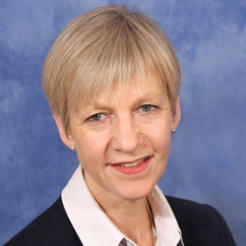The number of fundraisers working for UK universities and colleges will need to “at least double” if the sector’s ambition to raise £2bn a year by 2022 is to be achieved, according to research by the Higher Education Funding Council for England.
HEFCE said its report, An emerging profession: the higher education philanthropy workforce, is the first to take a detailed look at the fundraising workforce in universities and colleges.
An earlier report, also led by Professor Dame Shirley Pearce, the Review of philanthropy is UK higher education, set the ambitious goal of raising £2bn a year in gifts from 640,000 donors by 2022.
Last year’s Ross-Case survey showed fundraising in the higher education sector was up 14.4 per cent to a record £774m in 2011/12.
The workforce review, published on 1 May, had more than 750 contributors and included interviews with senior practitioners, vice-chancellors, donors, HR specialists and professional organisations.
Researchers analysed the size and nature of the workforce needed to deliver the 2022 goal and found the need for “at least double, and preferably triple, the current staffing contingent”, which totals 1,842, the report says.
“Expansion in staffing levels has correlated with an increase in funds raised,” it says. “And of course quantity needs to be increased with no dilution of quality.”
In her foreword, Pearce says the pool of professional fundraisers working in UK higher education is too small.
“Many of those interviewed expressed anxieties about the vulnerabilities that come from growing, sometimes fierce, competition between universities to attract the best from this restricted supply,” she says.
This “limited pool” is leading to escalation in salaries and over-rapid career progression for fundraising staff, she says.
The report makes recommendations on how to attract, retain and develop the extra fundraisers needed to achieve the target. These include; a clearer career path, the use of straightforward language to describe roles, and greater openness to candidates from a wider range of backgrounds.
It says internship schemes such as the HEFCE-supported Council for the Advancement and Support of Education graduate traineeships, are working well and could be extended.
Students who work on university ‘phonathons’ are an “excellent source” of fundraising talent, it says.
Pearce said in a statement: “Our work has proved that investment in fundraising brings results whatever the size or type of university or college.
“If this success is to continue we must have a strong and growing group of educational fundraisers who are skilled in leading development teams and working with academics and institutional leaders.”
Kate Hunter, executive director of Case Europe, said: “This report will help raise the profile of the fundraising profession, which has an increasingly significant role to play in the higher education sector.
“The higher education fundraising community must now emerge as a full profession, raise its profile and attract more of the best graduates and talent from other sectors to deliver its potential.”









